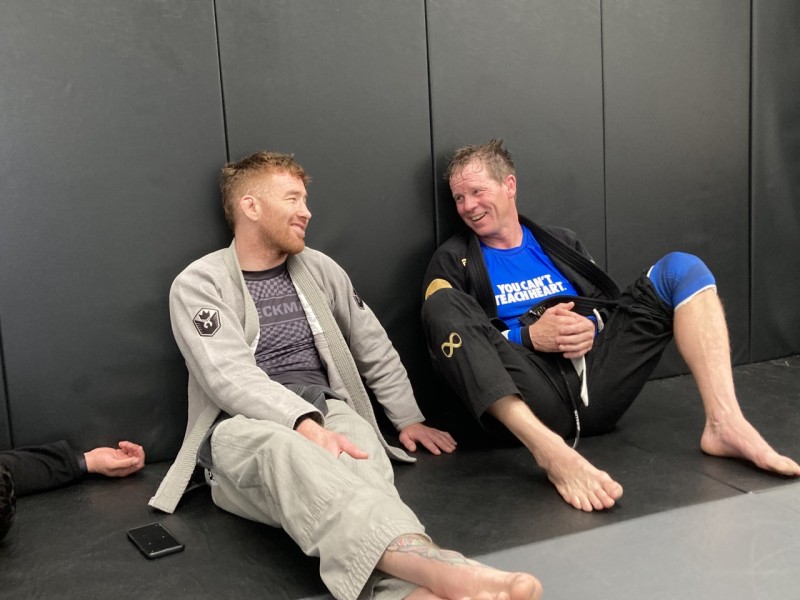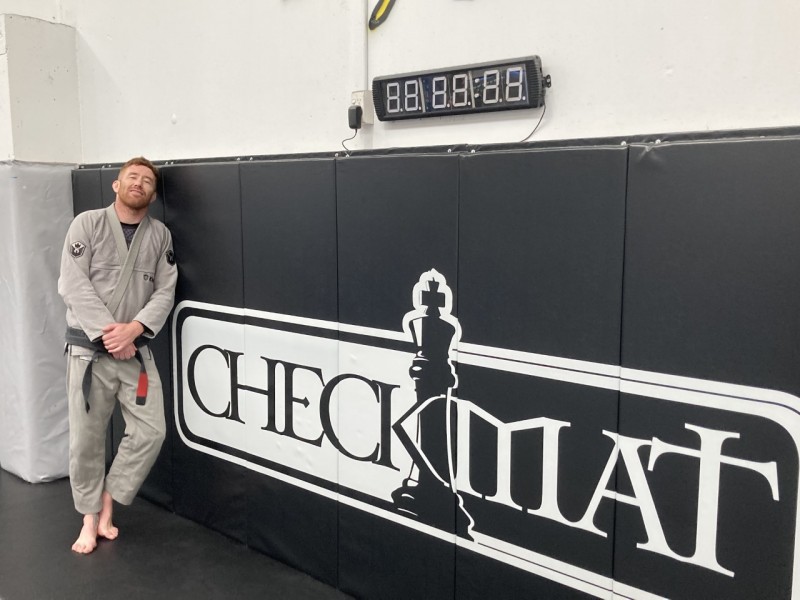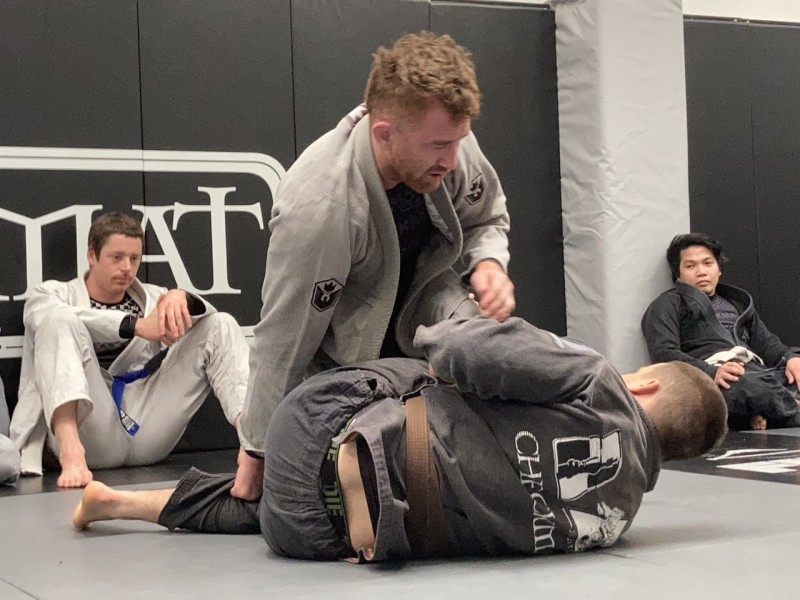By his own admission, Greg Watson was never supposed to be successful.
He sits in his home in Bryndwr, sipping a cup of tea, a wry smile on his face. His two dogs playfight on the ground beside him. His dark red hair is unkempt, and a 5 o’clock shadow peeks through his jawline.
“I’ve achieved all my dreams. I have a black belt, I’ve got my dream car, I have my own gym. It’s all I ever really wanted.”
It took Watson 14 years to achieve his black belt – a ranking in Brazilian Jiu Jitsu few achieve. It’s been his life's ambition, one that has taken him from New Zealand all around the world.
His limbs are long and skinny, and he walks with a laid- back, relaxed composure. You might never know that Watson is a high-calibre martial artist.
Brazilian Jiu Jitsu (BJJ) is an evolution of Judo developed in Brazil, a type of ground-fighting. Watson is the head coach of Rollone, a gym in Sydenham and he has over a hundred students.
Watson is the beating heart of the gym, living proof of the transformative power of hard work and dedication.
Born on November 1st, 1983, Watson was almost named Kiwi, after the horse that won the Melbourne Cup in the same day.
“I’m glad they didn’t name me that,” he laughs.
Growing up in Dunedin, Watson was allowed a lot of freedom, but found himself unengaged with school life, as much as school was unengaged with him.
“They thought I had a learning disability for a while. You don’t really get help in schools.”
He was bullied at school due to his red hair, and in turn started to bully other kids. Dropping out of school at a young age, he roamed the streets of Dunedin, becoming a painter by trade. But his bad habits thrived as he grew older.
“I’d fight all the time when I left high school.”
His forays into street fighting quickly grew out of control. After a friend was attacked by a group of people with golf clubs, a vicious back and forth ensued on the streets of Dunedin.



